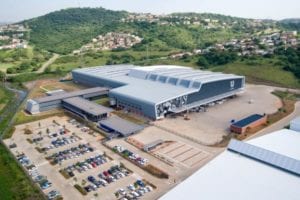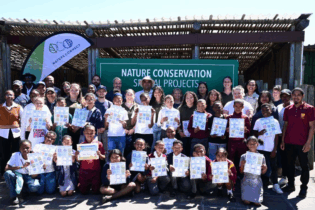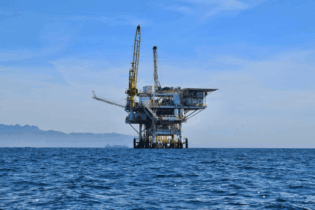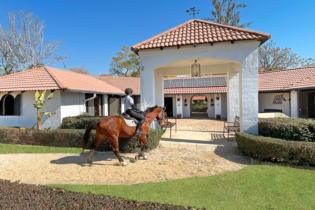Sustainability incorporating water recovery and rain water harvesting bring benefits
The new R670 million, state-of-the-art Unilever savoury dry food plant at Riverhorse Valley in Durban has set a new benchmark in South Africa’s industrial sector. As the country’s first green manufacturing plant with a significantly reduced carbon footprint, the Indonsa factory was designed in terms of a brief to provide wet service systems with sustainability and water neutrality in mind. What has emerged on the ground is a 22 000 m² factory – the biggest dry savoury food plant in Unilever worldwide – that is capable of producing 65 000 t of product per year (capable of being expanded to 100 000 t) and incorporating advanced water treatment and water recovery systems. The design has the added benefit of reducing power consumption in the factory. The key elements of the wet services systems are a water recycling system comprising a dissolved air flotation unit, membrane bioreactor (MBR) and reverse osmosis (RO) plant; a harvested rainwater treatment line in the treatment plant; treating and recycling shower and process wash water; and a hot water generating system. The water harvesting/recovery systems work as follows:- rainwater is recovered off the main factory roof and stored in a 1.5 million litre water recovery tank
- AC condensate water is recovered from all air-conditioning units and stored in a 1.5 million litre water recovery tank
- all greywater is drained into various effluent sumps
- sewerage is not recovered and is drained directly to municipal sewers.
Hot water is generated by a central hot water plant and distributed via a reticulation network to all parts of the factory where hot water is required. The heat extracted from the factory space by the AC system is transferred to the water in the hot water plant by a heat exchanger. This reduces the energy demand on the national grid. Instead of using electrical power to generate hot water, the hot water is generated by heat rejected from the AC system.
The recycled grey water in conjunction with the harvested rain and AC condensate water means the site in theory does not require any water from the local authority. Unilever states that the water recovery systems should enable the recovery of 70% of all water in production phases. The water is being treated to the nationally accepted drinking standard and will be recycled for use in the factory All water activity is monitored on a dedicated PLC system so that the system is fully automatic and that actual recycled water volumes can be monitored. The water recovery plant has been established separate from the factory and any untoward changes in the operating parameters of the plant are notified on the monitoring screen in the plant control room, which then cause switching over to municipal supply in the event of an emergency. It is estimated that the factory will harvest 19 million litres of combined rainwater and AC condensate water for recycling and use as domestic water. “The advanced technology in operation at Indonsa sets new global standards in responsible and sustainable dry food production. It embodies our resolve to simultaneously improve the lives of people and to entrench respect for the environment,” says chairman for Unilever South Africa, Marijn van Tiggelen. He adds that Unilever viewed sustainability as a strategic economic and business imperative and vital element of its vision. “For us, sustainability now implies responsibility, integrity and moral obligation.” Pier-Luigi Sigismondi, Unilever’s chief supply chain officer, states that the group aims to globally reduce carbon dioxide emissions from manufacturing and logistics by over 40% by 2020 from its 1995 baseline, at a rate of almost 5% a year. “It is imperative for Unilever to respond positively to growing global demand for sustainably sourced products. We will continuously reduce our impact across the entire lifecycle of our products and intensify the advancement of new technologies such as the ones used here at Indonsa to achieve our global sustainability objectives.” Indonsa is a global first for the group in terms of advancing its focus on sustainable “green” technology. It is Unilever’s second largest plant in the world and its fifth plant in South Africa. Globally, Unilever operates 250 plants selling about 170 billion products in 180 countries annually.






